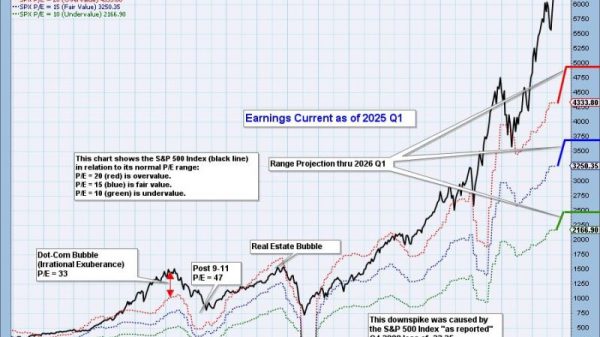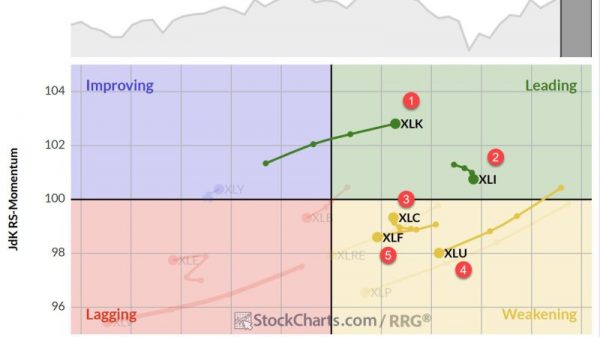After months of resisting efforts by Democratic allies to get him to take a harder line with Israel for its conduct in the war in Gaza, President Biden this week made what may be his most significant statement to date.
For the first time, he threatened to cut off the flow of certain types of weapons if Israel doesn’t heed American warnings — specifically, if it launches a planned invasion of Rafah that the Biden administration worries could lead to even more extensive civilian casualties.
It’s a dicey decision, both politically and foreign policy-wise, from a man without many good options right now.
But in some ways, it’s been a long time coming. And at the very least it reflects the direction Biden’s party has been headed in for months.
An outpouring of support for Israel after Hamas’s Oct. 7 massacre quickly gave way to liberal skepticism about how Israel had prosecuted its military response. And over the past six months, we’ve seen the left’s shift away from Israel continue mostly unabated.
Perhaps the most often cited manifestation of that is in the relative sympathies toward Israelis and Palestinians. Democrats had for years drifted toward the Palestinians, with a Gallup poll in early 2023 showing Democrats sympathizing more with them for the first time in the 21st century.
Oct. 7 briefly changed that, but since then, polling from the Economist and YouGov has shown a steady and pretty consistent move toward the Palestinians. About 4 in 10 Americans say their sympathies are “about equal” between the sides, but those saying they sympathize more with the Israelis has dropped from 34 percent in mid-October to 15 percent today.
About twice as many Democrats chose the Israelis as chose the Palestinians in October; today, Democrats who pick a side choose the Palestinians by double digits.
We’ve seen an even bigger shift when it comes to the root of Biden’s announcement this week: the idea that Israel is going too far.
In late October, more Democrats (39 percent) said Israel’s military response was either “about right” or “not harsh enough” than said it was “too harsh” (33 percent).
But Democrats have again shifted steadily away from Israel. Today, a majority of Democrats (54 percent) say its response has been “too harsh” — 30 points more than those who say it’s been “about right” or “not harsh enough.”
Just because people regard Israel’s actions as “too harsh,” of course, doesn’t mean they necessarily desire a hard line or cutting off aid. But there, too, we’ve seen Democrats gradually adopt a more skeptical position.
While in early November, Democrats favored maintaining the same levels of Israel aid or increasing it by around a 2-to-1 margin, polls over the past month show a plurality of Democrats now want it decreased.
That number crept as high as 48 percent in an early April poll — nearly half of Democrats wanting less money for Israel.
ABC News-Ipsos polling last week showed a similar shift. It asked whether the United States was doing “too much” to support Israel. The biggest shift away from Israel since January? Among those who described themselves as “somewhat liberal.” They went from 35 percent saying we were doing too much for Israel in January to 48 percent now.
Perhaps most remarkably, an Economist poll last month showed Democrats agreed 53 percent to 14 percent that “Israel is committing genocide against Palestinian civilians.”
(It’s valid to ask whether people truly know what “genocide” entails, and Americans tend to apply that label pretty broadly. But it would at least seem to reflect significant unease about how far Israel has gone.)
Given all of that, you begin to see how even a historically pro-Israel Democrat like Biden might come around to a more forceful posture. He’s not actually threatening to reduce the total level of aid; just cutting off offensive weapons that could be used in an incursion into Rafah.
That turn may be in line with a growing segment of his party, but Biden still risks losing the support of key Democratic-leaning constituencies or the broader electorate.
Even these polls, after all, show that scaled-back support of Israel is a minority position with the broader public.
The ABC-Ipsos poll showed 38 percent overall said we were doing too much to support Israel. And the most recent Economist polling shows only about one-third overall say Israel’s response has been “too harsh” (34 percent) and that we should decrease aid (34 percent).
The question now is whether Biden’s warning will have the desired effect and help tamp down the growing consternation on the American left — or whether it will just lead to even more choices among fraught options.

































